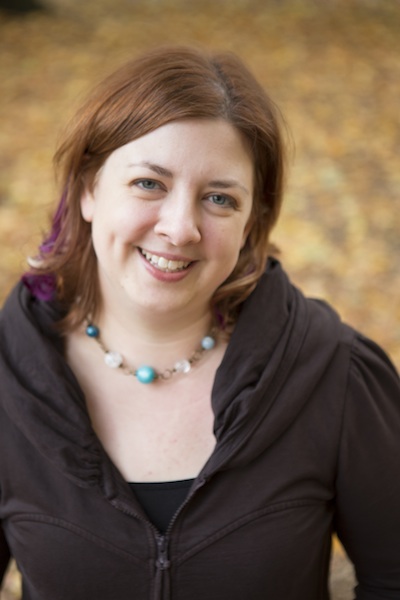Embrace the Minotaur (or: Freedom in Structure)
 Monday, August 15, 2011 at 5:46PM
Monday, August 15, 2011 at 5:46PM 
I seem to have contracted a post-graduate malaise. I feel tired, lost, somewhat twitchy.
What is this place? This no-man's-land (or no-muse-land) of not writing? This creative ennui? This blank-page-avoidance? It feels...familiar. Ah, yes, I think I've been here before. The only difference is that this time I've arrived with letters after my name.
I'm thrilled to have the letters, but they don't really help me when I'm faced with my old foes of fear and procrastination. But something from my time in the graduate program can help, and that's the experience of working toward the degree. Each month, whether I felt inspired or not, I had already made a commitment to send work to my advisor.
I chafed against that structure for weeks on end, but when the deadline came, I always had something to send. It wasn't always new work, and it wasn't always my best work, but for two years I managed to cobble together revisions and attempts, and even a few promising gems. That structure forced me to produce. Now that structure is gone, and I feel lost.
This is an ongoing theme with me: I hate structure, yet I need it. There's something almost mystical about this concept of freedom within structure. Structure limits the options, narrows the focus, directs the attention. Structure says, "Here's what you need to do, so do it." Whether it's the formal constraints of writing a sonnet or the crazy commitment of turning in thirty pages of writing every four weeks, structure delineates a path for us to follow, like a lantern-lined path in a dark forest. We may not be able to see where we're going, but at least we know where the next step falls.
Without that structure I feel like I'm shuffling and limping along, groping at trees and shrubbery, possibly doubling back on myself in some kind of labyrinth. Without structure to show me the path, I end up standing still, straining my eyes against this free-form darkness, listening for strange sounds. (Where's that heavy breathing coming from? Is there a Minotaur in here?)
Too dramatic?
Even so, I've linked arms with several of my friends and former classmates, and we've created our own structure through a virtual workshop group, complete with monthly deadlines. I'm also gearing up to submit a few pieces to literary journals, as well as to apply to at least one writers' colony. This is self-imposed structure, and nothing will happen if I miss the deadlines.
I mean that last phrase several ways: nothing will happen if I miss the deadlines. Nothing "bad" will happen to me, but also: Nothing will happen in my writing. If I don't keep moving forward, I will simply stay in this dim wilderness.
The structure of a graduate program taught me about two crucial concepts of the writing life: work and practice. Each word wraps around itself in dual definition, a double-helix of meaning.
Work: Writing is work, and writing is my work. Writing is occupation and vocation. I work at writing because writing is what I'm called to do. Within the structure of that lighted walkway, I find the freedom to follow my path.
Practice: A musician practicing scales. A Buddhist with a daily practice of meditation. I practice the practice of writing. I'm beginning to develop muscle memory. If I sit down to write often enough, maybe the part of me that is called to this work will glide more often than she fumbles. I might even hum -- metaphorically speaking, of course (or not).
** ** **
During my last semester in grad school, I admitted to my advisor that I hate the blank page. Generating new work makes me squirm. I much prefer the process of revision, the comfort of familiar words and stories. Upon hearing this, he invited me to try something radical.
"Sit with the blank page," he said.
I gulped and squirmed. I may have pursed my lips and squinted my eyes at him through the phone. And then, like a good patient, I promised to try this newfangled medicine, knowing that it was just what I didn't want -- and just what I needed. And then I promptly avoided sitting with that blank page for three weeks.
The final week of the final four week cycle rolled around and I sat down. Or maybe I started walking along that path with my eyes closed again, this time trusting that I would be shown the way, that I wouldn't be eaten by a man-bull, that I wouldn't trip, or if I did trip, that I'd have the faith to get back up. (At this point maybe you're wondering: Which is it? Is writing about sitting still or about moving forward? Yes. It's not either-or. It's both-and.)
Something miraculous and unexpected happened as I sat with that blank page: The path widened, branched out, and I gained access to parts of the forest I hadn't seen before I sat in that silence, in that structure, in that freedom.
** ** **
I remember this now when I feel lost among the trees. I remember this now when I hear the words whispering somewhere in the woods, beckoning me, haunting me with their heavy breathing. I remember this now as I sit down to revise and to, yes, write something new.
I'll keep working and practicing, working and practicing, because I don't really know what else to do.





